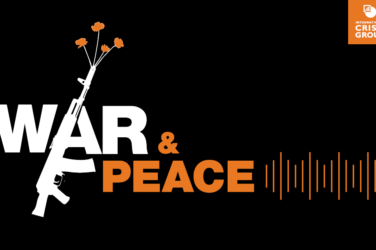The figure of a “Lattitante” (a fugitive from the law) has long attracted not just interest, but has not infrequently acquired a mythical status, in societies across the world. So when, on Monday 16 January, the Procuratore Generale of Palermo announced that Italy’s most famous example of the species, Matteo Messina Denaro, had been arrested earlier in the morning and was being transferred to a secret and secure confinement (later identified as the well-known prison in L’Acquila), national and international media exploded in joy. For this was indeed a special occasion. Thirty years to the day (plus one) after the arrest of Toto Riina, one of the most savage of all Mafia bosses, the man to whom Riina is said to have confided the darkest secrets of Mafia operations (including large scale terrorism), was himself at last in custody. After 30 years evading capture.
The path leading to the capture involved eventually combined work by elements of the police forces, the Carabinieri ( ROS – Riparto Operazione Speziale) the Guardia di Finanza, and several other official institutions. That alone is a substantial achievement, as anyone who has tried to harness the collective skills of diverse public bodies will know. Certainly, there must have been lots of ebbs and flows during these 30 years. The outstanding Italian fighter against organized crime, Roberto Saviano, has suggested that truly serious work has been concentrated within the last decade, an assessment which seems more than plausible given political and other conditions in earlier years. But the painstaking accumulation of countless details, and the ability to create a meaningful and consistent picture from them, has finally paid off. In an almost unique response, all political groups in Italy have joined in a single chorus praising the efforts made.
Just like Riina, and indeed other Mafia leaders, Messina Denaro had been found in Palermo itself, seemingly confirming the accepted wisdom that a Mafia boss never leaves his territory – to do so would be tantamount to abdicating control of the business. Messina Denaro had been an integral part of Riina’s violent assault on the power of the Italian State, launched over 40 years ago and spearheaded by his strategy of “stragista”, namely murderous public attacks on people and institutions throughout the national territory, resulting in hundreds if not thousands of casualties. The arrest of Messina Denaro was immediately welcomed for, among other things, being the symbolic closure of that horrendous period of Italy’s present history. Prime Minister Meloni immediately flew to Palermo to congratulate personally the key officials involved in the capture and indeed to suggest enthusiastically that this calendar day, 16 January, should henceforth be celebrated as the day when Italy demonstrated that it is a society where the law prevails, and organized crime can be defeated.
It is far from the purpose of this essay to imply that this joy, this enthusiasm, this recovered pride, are out of place. As a non- Italian long conscious of the incredible efforts made by so many brave Sicilians and other Italians to fight the depravities of Cosa Nostra, and of the N’drangheta and the Camorra, I too admire and recognize and the value of what has been accomplished. However, as several of the Palermo protagonists underlined in the extensive press conference late Monday afternoon, this momentous step is just that – a step along a terrible road whose end point (if one exists) is hoped to be the control, if not the eradication, of a system of organized crime which has constituted a highly malignant cancer in the body politic of Italy. The lines which follow seek not only to offer some clarification on the nature and depth of the ongoing challenges in Italy, but also to situate them in what this writer considers to be an ever more complex and high- risk international environment where so many of the indicators currently seem positive for the operators of institution destroying crime.
Let’s begin with a closer look at Messina Denaro, his activities and his capture. He was born into an established Cosa Nostra family, brought up in an environment where violence was a standard item on the day’s menu, and, as the saying goes, bred into the family business (“family” of course being understood as a core term in Cosa Nostra use of the Italian language). His formative years were the ones that have been so central to Italians’ perceptions of their society and to foreign perceptions of it. In the 1980s, as the colossal profits from the international drug trade swelled Cosa Nostra coffers to sums that made normal profiteering, extortion rackets and the rest appear trivial, so certain lawyers, public prosecutors, and members of State authorities moved to understand the new face of Cosa Nostra and bring to justice its key leaders. Several of these names – including those of Falcone, Borsellino, Generale Della Chiesa – are inscribed on the scroll of the great martyrs for Italy: all were murdered, effectively by order of Tito Riina, in the black decade or so from the opening years of the 1980s to the early 1990s. Their murders were part of the “stragista” method, whereby Riina organized killing of both innocent civilians and of his official opponents. The aim was at minimum to render Italian State actors opposed to Cosa Nostra powerless, at maximum to ensure that State institutions be entirely subservient to the aims of Cosa Nostra. Messina Denaro, then in his twenties (and hence today still under 60 years of age – he has been a fugitive for more than half his life so far), was a fundamental operative in the reign of Riina.
Riina was THE crucial figure in the whole Cosa Nostra system. He ensured that divisions of market territory were respected, acted to limit internecine warfare in Sicily, conducted negotiations with the major non- European criminal actors to create acceptable terms for the division of profits and maintain/improve international logistics (central to the drug business). He also bribed/threatened/murdered countless persons and entities, in Sicily and in Italy more generally, so that Cosa Nostra was protected from undue outside disturbances. While in its early days, well before the epochs examined here, Cosa Nostra was famous for running protection rackets (extracting money, under threat of violence, from businesses and individuals), Riina perfected the network which protected Cosa Nostra itself from the reach of the law. The resilience of that network is the fundamental reason why it has taken so many years to arrest Messina Denaro and others still to be found (in an interview on Monday 16 January, the Italian Minister of the Interior indicated that there may be 4 top level Lattitanti at loose, and perhaps some 65 others of considerable importance). Whether most of these are connected with organized crime is not clear, nor is the time for which each of them has been on the run. Hence a central battleground in the effort to clean things up is the detection of these official and private channels of protection developed and refined originally by Riina. That is indeed an onerous task, which might produce alarming findings.
Messina Denaro has been the successor of Riina. While always ready to use violence to maintain the integrity of the system, he has nevertheless altered its focus in keyways. As with any complex international business (or integrated set of businesses), he has strived to keep Cosa Nostra as a leader in its field – put in sarcastic terms, Cosa Nostra is an example of Italy’s proclaimed “Eccellenza e Qualita”. Indeed, he is labelled “Il Lattitante 4,0” to fit contemporary notions that “4,0” in any domain represents the frontier (since EU Sanctions are now -what number is it, 9,0? – maybe they have advanced too far), Messina Denaro has been running a system against which it is exceptionally difficult to compete. Personnel in the system are very highly trained, have access to immense financial and other resources, and are integrated into the upper echelons of licit society. The Italian authorities are acutely cognizant of the strengths of the system they are trying to deal with.
Although Messina Denaro was arrested during a normal visit to a well- known clinic in Palermo where he was being treated for a tumor, his relative youth means that, if health difficulties are overcome, he can think about the future. True, he has already accumulated, in absentia, several life sentences for violent acts in the past, and therefore permanent imprisonment is a distinct possibility – still, you can never be sure, people have been known to disappear from prisons (Licio Gelli, he of P2 fame, is just one example). He has no incentive, it would seem, to reveal any of the apparently prodigious amounts of information in his possession. Given that he has had so long to decide on how activities should be continued and magnified were he to be captured, it also appears likely that the actual capture will not represent much more than a ripple on the surface of Cosa Nostra business. The larger risk to the system may not come so much from official behavior as from possible tensions inside Cosa Nostra itself. These are of course hard to assess. The sophistication of today’s Cosa Nostra personnel, plus the exposure that would inevitably come from internal battles conducted in the public gaze, suggest however that today’s Cosa Nostra ought to be able to control itself.
The leading Italian experts, persons with profound experience in these matters, are well aware that the road ahead is going to be arduous in the extreme. Organized crime differs from other criminal activities in that it enters into every fiber of the society where it operates. Hence, to take the simplest example, it is utterly misleading to speak of a conflict between organized crime and the State. Why? Because “the State” is in no sense a homogeneous entity. Organized crime itself coopts parts of State institutions and entities, who become its “partners”. These partners then either work explicitly with organized crime or strive to ensure that its activities are not seriously hindered. How serious is such a situation? Surprisingly, it would, in my view, be alarmist to suppose that the situation would necessarily be disastrous (though it certainly could be). A number of internal and external influences are at work here, and they may or may not be collectively lethal. Indeed, a kind of “game” can result where all active participants (a category which excludes very sizeable parts of the population) thoroughly understand they are playing the game, and arrive, openly or tacitly, at a succession of “status quos” where the geese can continue to lay golden eggs.
At this point, its time to think of Italy’s position in the broader international context. Events and processes at work in many countries of Latin America offer the most penetrating insights. Let’s start with Colombia. The country has, for at least 7 decades, been torn by violent civil strife caused by profound social problems. That marvelous country, therefore, had the gravest institutional tensions well before things called cocaine and organized crime appeared on the scene. But the transformation wrought by them did lead to situations where crime leaders, Pablo Escobar in particular, did think of a having a fully-fledged “narco State” where they would actually run the State apparatus, suitably modified to conform to their vision. That has not happened. Cocaine business in the country has been reshaped, not only by competition among the domestic cartels, but by the disruptive effects of Mexican groups seeking to gain command of upstream components of the international supply chain, and by significant shifts in external demand (in particular, growing consumption in the rich Chinese market). Colombia still has the deep rooted social and political fractures apparent at least a century back. Organized crime certainly does not help, and today’s “licit economy” (for instance the coffee sector) is of course heavily shaped by monies coming from organized crime. All that said, Colombia continues to advance, with all the “ifs and buts”.
What about Mexico? There things are indeed far worse. Organized crime, sustained by drug revenues, in recent years has had, and continues to have, a terrible effect on the population. Whilst in Italy, difficult though the road has been and will continue to be, there are genuine grounds for guarded optimism, in Mexico it has become ever more unrealistic to sustain such an argument. Precious little seems to remain of a “useful State”. And organized crime seems intent not only on internal destruction (within Mexico) but in extending its geographic reach. Much of Central America, save for Costa Rica, has had its always highly fragile institutions torn to shreds, with the Mexican organized crime groups now very powerful there. Prospects for a future of any kind of dignity for the large majority of the populations are slim indeed.
The Mexican example thus appears to exhibit a very different sort of organized crime from that in Italy. It is an animal that does not seem to see any advantages in ordered structures of any kind, other than the primitive ones functioning within the Mexican gangs themselves. This very somber picture shows strong signs of being reflected in the Andean region, where Ecuador, Peru and Bolivia, each with its own particularities, are coming to meet most of the criteria of “failed States”. Venezuela too is now within the contours of this world. The long neglected agricultural potential of that country is now at last beginning to be used – coca production there is expanding rapidly.
State power and criminal organizations have always had a close relationship, whether in terms of strong opposition to each other or through relatively intimate embraces. Since roughly the collapse of the Berlin Wall, the transformation of the European Common Market into a Union, and the establishment of the World Trade Organization, international economic space has provided a wonderful opportunity for organized crime. Its globalization has proceeded at rhythms much outstripping those of licit transactions. The forms of corporate organization used by the principal entities in the criminal world have helped them reinforce their power and make challenges to official State power more significant. The arrest of Messina Denaro marks a vital moment in efforts by Italy to hold onto a more or less licit system of power, albeit one still with major weaknesses. In other parts of the world, the picture is none too cheerful. Immense hard work, much courage, and a flowering of ethical behavior will be required to build on what has happened. These are heavy demands to make – a positive response to them would mean that the illustrious city of Palermo shakes off the sad reputation which has for too long blighted it and instead becomes synonymous with the proper use of power.
Peter O’Brien, Italy, 18 January 2023





